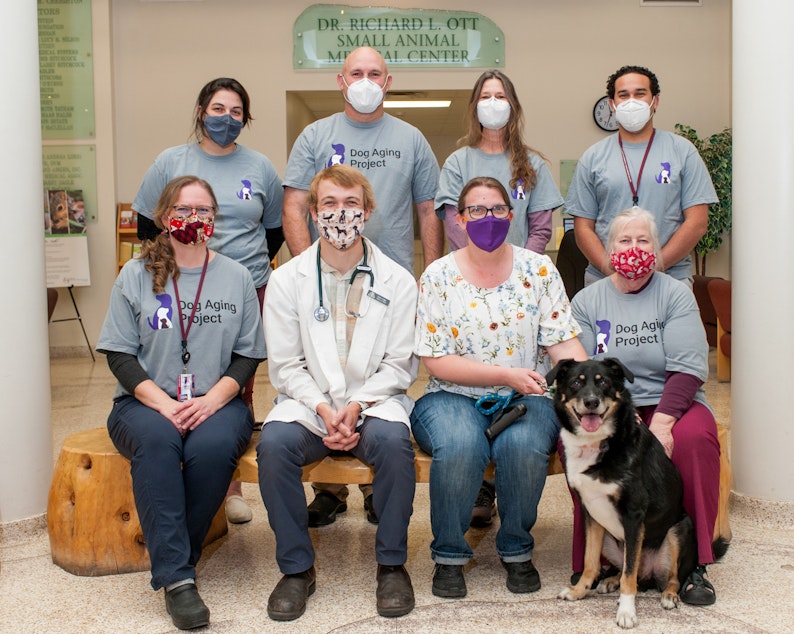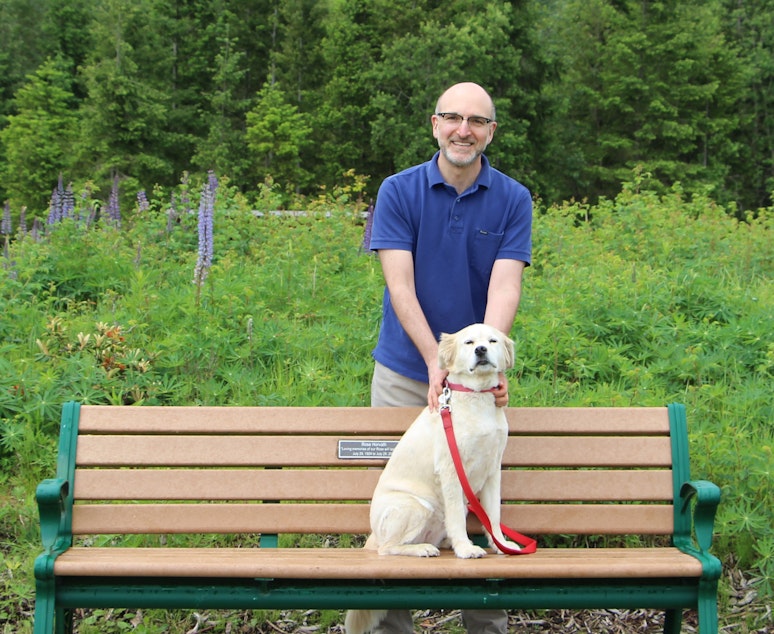UW aims to learn new tricks from these old dogs

The University of Washington's Dog Aging Project is trying to keep our tail-wagging best friends healthy for longer.
The project is studying how dogs age, and aims to find out why some dogs live longer than others and how that is impacted by their biology and environment.
A sub-focus is learning about the different variables in dogs getting dementia. Matt Kaeberlin is one of the co-founders of the Dog Aging Project. He says genetic and environmental variants "that people think might be associated with Alzheimer's disease in people are similar types of things associated in with dementia in dogs."

The project has over 32,000 dogs enrolled. They are still looking for more to join the pack.
There is one clinical study inside the bigger project. It is a double-blind, placebo-controlled clinical trial testing a drug called Rapamycin. The focus is to see if the drug will increase life span and health span.
Sponsored
But they are also tracking other health factors like energy levels, cancer risk, arthritis, and dementia. Kaeberlin says past studies using this drug are "impressive." When testing Rapamycin on lab mice, life span increased by 9-30% depending on the dose.
"More importantly, the drug delayed or sometimes reversed the decline in function that is seen in aging," Kaeberlin said.
They want to see if they get the same results in dogs, especially regarding dementia.
Very few dogs will be part of the clinical trial with Rapamycin and are not required to be part of the bigger project. Most of the participants' owners only need to fill out surveys. Some of the furry participants will give a cheek swab, hair sample, or blood sample.

Sponsored
Daniel Promislow is another co-founder of the Dog Aging Project.
"When studying age, dogs are great models," Promislow said.
That's because they are so diverse and variable just like humans. Think about a dog park. The dogs are of different sizes, hair textures, breeds, and energy levels. That means lots of different butts to smell!
"All of that variation gives us the opportunity to ask and understand what accounts for that variation," Promislow said. "The other thing is dogs live in our own environment so what we learn about dogs is likely to also apply to humans."
Dogs also have shorter life spans than humans; they age seven times as fast. This allows researchers to get to answers much faster compared to humans.
Sponsored
You can nominate your best friend to be part of the study here.
All breeds and ages are welcome. The project is especially interested in getting more bigger breeds and puppies under the age of three.

